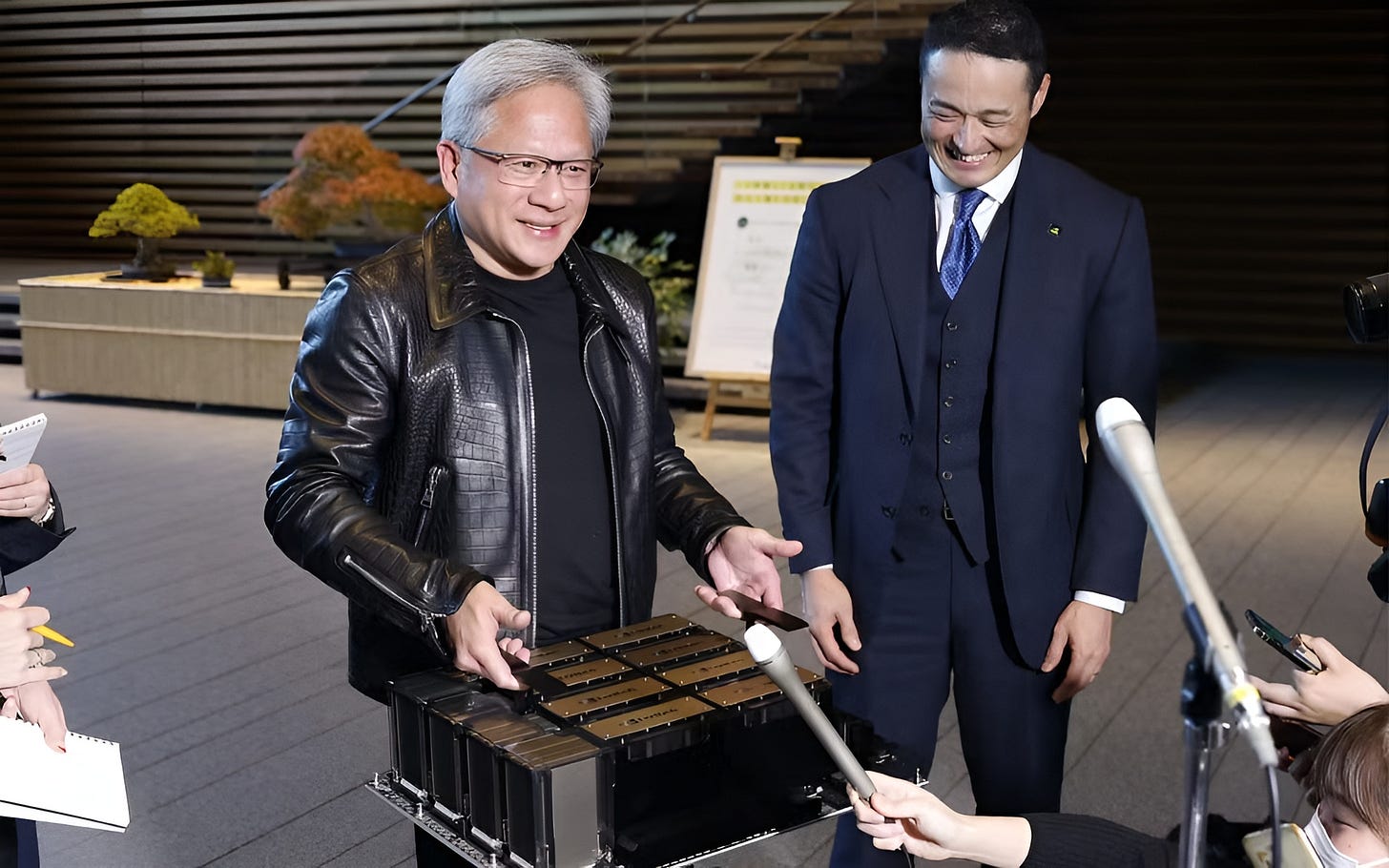NVIDIA To Collaborate With Japan On Their Cutting-Edge ABCI-Q Quantum Supercomputer
Don't underestimate Nvidia's future in hybrid Quantum.
Hey Everyone,
I finally bought a domain name for Quantum Foundry, it’s thequantumfoundry.com. Thanks for your patience with TQF, I want to increase my post frequency on this channel, and write more about how Enterprise is adopting Quantum and via National partnerships, which bring us to our topic of today.
I’ve started a semiconductor Newsletter, and I want to tie in all of these topics together more.
The environment is one where increasing geopolitical uncertainty is leading to more National projects. Japan is really interesting here with its partnerships with Taiwan, the U.S. and even OpenAI making a hub there.
Nvidia and Japan's tech institute to develop a hybrid supercomputer, blending quantum computing with traditional capabilities.
ABCI-Q will be available as early as fiscal year 2025, and is expected to develop applications such as pharmaceutical research and logistics optimization.
Part of Nvidia’s Moat is CUDA and its Software Advantage
CUDA stands for Compute Unified Device Architecture, and is a parallel computing platform and application programming interface that allows software to use certain types of graphics processing units for accelerated general-purpose processing, an approach called general-purpose computing on GPUs.
I’m investigating more the merging of Quantum and AI capabilities that I believe will become more important. How will Generative AI Transformer technologies, like GPT, run on Quantum computers in the future?
A new study published recently in Quantum used simple hardware to show that rudimentary quantum transformers could indeed work, hinting that more developed quantum-AI combinations might solve crucial problems in areas including encryption and chemistry—at least in theory.




